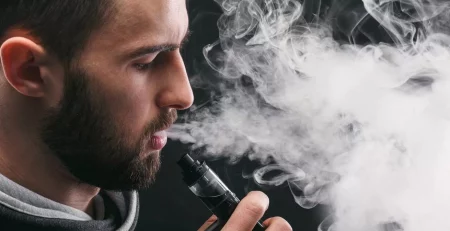How to Help Someone With PTSD Sleep
The Importance of Sleep for Someone With a Trauma Disorder
For those living with post-traumatic stress disorder (PTSD), navigating the tasks during a typical day can feel mentally and physically overwhelming. Managing PTSD symptoms like night terrors, anxiety disorders, and difficulty concentrating is a daily struggle.
As exhausting as these symptoms are, one of the most crippling aspects for people with PTSD are the sleep disturbances.
Sleep disruptions like insomnia, night terrors, and other PTSD-related sleep problems are common among those who suffer from the disorder. The lack of sleep quality compounds the different symptoms of post-traumatic stress disorder, making life more difficult in the process.
Finding the remedy for sleep disorders related to PTSD is needed for immediate relief but is also just as essential for long-term recovery. Let’s address these issues and address how to help someone with PTSD sleep (all insights can be used for yourself as well!)
In this resource from the trauma treatment experts at Icarus Behavioral Health, we explore PTSD symptoms and sleep problems, PTSD symptoms that trigger sleep disorders, and what you can do if you’re having trouble sleeping as a result of your PTSD.
Why Does PTSD Affect Sleep?

Anyone who has suffered from the inability to obtain restful sleep due to traumatic memories has likely asked themselves this question. The truth is there are several reasons behind the regular occurrence of sleep disturbances for those who have PTSD.
Hyperarousal is a common side effect for people living with PTSD. This condition leads to heightened awareness of elements the mind perceives as a threat. Because of the increased levels of awareness, people with PTSD find themselves with increased heart rates, nervousness, and the inability to remain still.
This doesn’t create the ideal situation to improve sleep quality. With hyperarousal, people with PTSD usually aren’t able to fall asleep at all. Other side effects might allow for a few minutes of sleep here and there, with no REM sleep, which is what the mind and body require.
Confidential Trauma and PTSD Assessment at Icarus – Call Now
Flashbacks
Perhaps the most common among people with PTSD who served in combat, flashbacks often wreak havoc on sleeping patterns. Flashbacks cause a vivid, intense reimagining of the traumatic event at the center of the disorder.
This current replaying of your traumatic event can lead to night terrors, poor sleep hygiene, and other sleep disorders. If the issue is chronic, you might find it hard to fall asleep. During most of these PTSD sleep events, the user experiences flashbacks after they’ve fallen asleep. This is what leads to what’s known as the “night terror.”
It’s not uncommon for those with severe PTSD triggered by a traumatic event during combat to act out as if they’re at war again. This can create a potentially dangerous situation, especially if you disturb the individual during their night terrors.
Substance Abuse and PTSD Sleep Issues
Unfortunately, many who have PTSD-related sleep problems turn to drugs or alcohol to experience relief. However, this usually results in the opposite and complicates the situation further.
Drugs like cocaine and meth make it challenging or impossible to fall asleep, impacting the overall sleep quality and impacting mental health. Other situations can lead to diagnosable sleep disorders.
Abusing opioids not only impacts your sleep quality because users don’t experience actual rest, but it’s not uncommon for people with a substance use disorder to develop sleep apnea.
Sleep apnea is a condition that causes sufferers to stop breathing at random points throughout the night. This is dangerous enough in itself, but it can also lead to heart problems and other medical challenges.
The Importance of Sleep for Trauma Recovery

During any mental health crisis, having an opportunity to improve sleep quality and experience actual rest is vital for healing. When mental health declines, it wears down the mind the same way a physical injury wears down the body.
In the same way, resting your body promotes healing an injured part of your body; eliminating sleep problems allows you to begin healing your mind. Sticking to a healthy sleep schedule is the cornerstone of any PTSD treatment.
When you’re able to improve sleep quality, this has a positive impact on your cognitive function. Enduring constant sleep problems also makes it challenging to regulate your emotions. Without a consistent bedtime routine that promotes restful sleep, it becomes difficult to stabilize your thought patterns and behaviors.
This can put you on an emotional roller coaster that makes it extremely difficult to recover from posttraumatic stress disorder properly.
Get Accredited Treatment Programs – Reach Out Now
Helpful Insight to Remedy Sleep Problems
If you experience even the most minor sleep disturbance, it can have a significant impact on your daytime PTSD symptoms.
Use the following tips to help you obtain more restful sleep and manage stress.
Medication and Supplements
There’s no shortage of prescription and over-the-counter remedies for treating PTSD and the forms of sleep disruption that accompany this disorder.
Consult your physician before starting any supplement, even if it’s all-natural. The following items are known to help promote quality rest:
All-Natural Options
- Melatonin is one of the most widely used solutions for sleep problems. It’s a chemical naturally found in the body that signals to the brain when it’s time to sleep. When used in doses between 3 and 10 mg, melatonin is known to help individuals fall asleep faster and stay asleep longer.
- Magnesium is a mineral that helps with thousands of functions inside the human body. It’s vital for promoting healthy heart and brain function. The relaxing effect triggered by magnesium intake also helps the body relax, putting you to sleep faster.
- Passionflower is an ingredient in many herbal blends that promote restful sleep. Although no scientific studies have proven such, minor surveys have been conducted where those with insomnia stated they could sleep better over five weeks when taking passionflower.
- Valerian Root. Studies have shown that taking 500 mg of valerian root over 30 days can drastically improve sleeping patterns. Many also claim it provides relief for depression, anxiety, and other mood disorders.
Common OTC Sleep Medication Types
- Diphenhydramine. is the active ingredient in Benadryl, ZzzQuill, Tylenol PM, and other OTC medications. Aside from helping users fall asleep faster, it’s also been used as an off-label remedy for anxiety.
- Doxylamine Succinate. This is the active ingredient in Unisom sleep tablets and NyQuil. It’s known to cause extreme drowsiness, helping users to fall and stay asleep.
Many of those who have PTSD are prescribed Xanax and other benzodiazepines. While these may be effective, they are also highly addictive. It’s strongly urged that anyone using benzodiazepines continues for a short time, with a plan to transition to something healthier and more natural after a breakthrough is experienced.
When to Seek Professional Help for PTSD

Many of those who have PTSD have difficulties with reaching out for help. This is especially true with cases of combat-related PTSD.
Because of the stigma surrounding soldiers and veterans, many don’t buy into the fact that counseling or treatment is a viable option for PTSD. For some, it comes with the territory and is just something one must cope with.
In addition, living with the side effects of PTSD is a decades-long dynamic for many and has become normalized in a way. However, even the most challenging and mentally resilient people will break down over time. If you notice any of the following symptoms in someone you know or have personally dealt with any of them yourself, it’s time to seek relief for your condition:
- You need help maintaining your composure in public or around large crowds.
- Loud noises from fireworks, vehicles, horns, or other triggering sounds send you into a full-blown panic or flashback.
- You’ve found it next to impossible to hold down a job or maintain a normal life due to your PTSD.
- You regularly have difficulty falling asleep or staying asleep, waking up multiple times throughout the night due to nightmares about your trauma.
- You replay your trauma continuously in your mind, seemingly unable to control your thoughts.
- You’ve thought about hurting yourself or others around you
Up To 100% of Rehab Costs Covered By Insurance – Call Now!
Relief for PTSD Is Closer Than You Think
At Icarus Behavioral Health in New Mexico, we take pride in our trauma-informed therapy program. Over the years, we’ve helped countless clients reclaim their independence and establish a positive outlook on life.
Thanks to our compassionate staff and state-of-the-art facilities, we’re equipped to provide the individualized form of therapy that you need for recovery. For more information, contact a member of our admissions team today.











